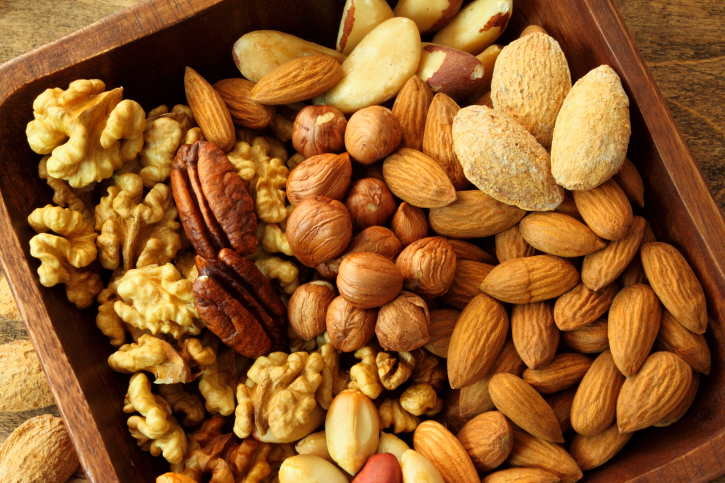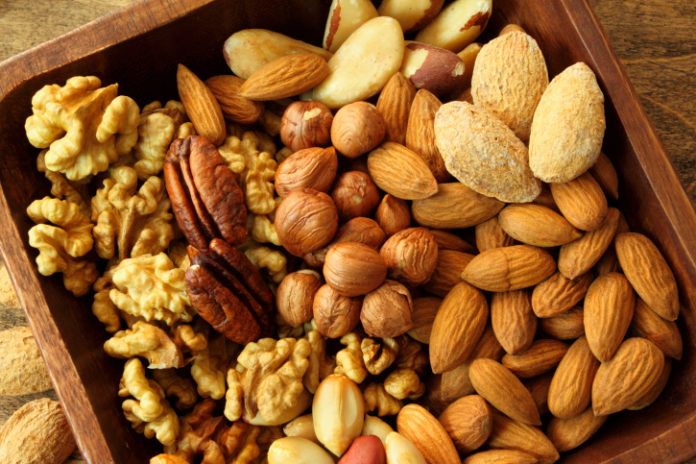A daily handful of nuts might help some people feel better and control their hunger, while possibly boosting heart health. Spanish researchers report that just one ounce of mixed nuts increased levels of serotonin, a neurotransmitter linked to mood, energy balance, metabolism and glucose levels. These changes could be especially important to patients with metabolic syndrome, a complex of symptoms including obesity, hypertension and high blood sugar that can lead to diabetes and heart disease.

Cristina Andrs-Lacueva, PhD, from the University of Barcelona, and colleagues compared serotonin markers in the urine of 42 metabolic syndrome patients over 12 weeks. One group was given a daily dose of mixed nuts (walnuts, almonds and hazelnuts), while the control group was told to avoid nuts. The nut-eating group also showed increased metabolism and higher levels of heart-healthy fats.
The identification of serotonin in this cluster of biomarkers of nut intake is new and surprising, comments Jeffrey B. Blumberg, PhD, director of Tufts HNRCA Antioxidants Research Laboratory. Overall, 20 apparent biomarkers of nut intake-from among hundreds of compounds measured-were found, including 19 previously linked to nut consumption. The association with serotonin is interesting because it suggests a novel potential mechanism of action of nuts. Blumberg cautions, however, that these findings need to be replicated by further studies in other population groups, before generalizations can be made about the effect of nuts on serotonin.
He also notes that participants in the studys intervention group ate one ounce (about a quarter of a cup) of nuts daily-five times more than the average American consumes. One ounce of nuts daily can be quite healthy in the context of a balanced diet, but is still more than most people eat.
Given the previously established heart-health benefits of nuts and the good-for-you unsaturated fats they contain, you might decide to boost your own consumption. If you do, make sure to substitute nuts for other, less healthy ingredients in your diet, rather than adding calories. An ounce of walnuts, for example, contains 185 calories.
TO LEARN MORE: Journal of Proteome Research, online first; abstract at pubs.acs.org/doi/abs/10.1021/pr200514h.
























